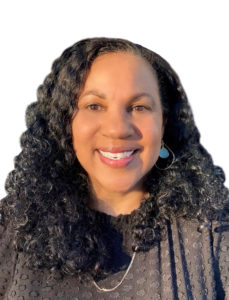

By Carolyn Fikke, Leader of the Consumer Products and Applications Sector Group at Golden Seeds
April 29, 2021
Seventy-five percent of consumers identify as having textured hair, with textured hair including anything from wavy to tight, coily hair. These consumers feel like the typical mass products don’t work for them and they need something special. As a result, if you look across the haircare category, the multicultural space is what is driving growth. In fact, this hair care sector alone now represents a $2 billion per year opportunity. The beauty space for Black women is experiencing exponential growth as more, and larger, companies target the multicultural market.
Golden Seeds explored this dynamic market with Nicola (Nikki) Chung, Innovation Lead for Hair Care at SheaMoisture, a pioneering brand recently acquired by Unilever. In this role, Nikki has developed hundreds of products for textured hair and helped SheaMoisture change the way the beauty industry serves Black women. Nikki spoke with Carolyn Fikke, the leader of Golden Seeds’ Consumer Sector Group, and a former investment banker with expertise in the consumer space. This is one in a series of Golden Seeds Trend Talks focusing on topics that are relevant, instructive and inspiring.
CF: Let’s start at the beginning. How and why did SheaMoisture get into business?
NC: Our founders were carrying on the legacy of their grandmother. They started a business in the U.S. about 30 years ago, drawing on her expertise in quality soaps and personal care items to support their family. It was a passion close to their hearts. They realized there were no brands representing Black women and championing their needs and causes, so they set out to address those needs. Their mission was not just to serve underserved consumers, but to overserve them. That’s still our motto. SheaMoisture is committed to offering high-quality products with natural ingredients that women can use with confidence.
CF: Can you talk a bit more about what market SheaMoisture serves and what needs are being addressed?
NC: Black consumers in the United States have enormous spending power — $1.3 trillion a year. About $2 billion of that is in the hair care sector, which includes shampoos, conditioners, styling products and treatments for textured hair. Marketers overlooked the need for specialized products for decades. Most hair care products on store shelves weren’t designed for textured hair, which requires more moisturizing, less-frequent shampooing, and more styling and conditioning treatments than straight hair. Commercial brands didn’t offer the full range of products Black women needed, and what they did offer was mostly petroleum-based. Black women wanted high-quality natural ingredients, so many created their own products at home, adding oils and butters and other ingredients to moisturize and protect their hair.
CF: What marketing strategies helped the company gain traction?
NC: It’s always been all about the consumer. In the early days, when money was tight, SheaMoisture focused on connecting with the community. We were among the first to use social media, starting a two-way conversation with customers to establish a relationship. The company also used event marketing, taking part in hair meet-ups where women gathered to talk about their needs and to share and sell products they were making themselves. It was important for SheaMoisture to find out firsthand what consumers wanted and to be seen as part of the solution. That’s true for any entrepreneur. You need a deep understanding of consumer needs—whether that comes from in-house data, social media or frontline testing—so you know your customers’ pain points and frustrations. That’s one of the keys to success, and it’s driven SheaMoisture’s product development. We’ve had to curtail in-person events because of the pandemic, but we’re using virtual events to maintain a connection.
CF: How else has COVID-19 affected the beauty business?
NC: One of the big challenges for beauty companies is that people are working from home and going out less socially. Women don’t need to style their hair every day, so brands have had to pivot. For example, there’s been greater focus on hygiene, and women are washing their hair more. Because they’re visiting salons less often, they’re also coloring and even cutting their hair themselves and using more at-home treatments.
CF: How has SheaMoisture’s product line evolved, and what’s on the horizon?
NC: Consumers have always driven our product innovation. Our early lines were focused on our customers’ top needs. The raw shea line was all about adding moisture, especially for those who were starting to embrace natural hair, rather than using relaxers. When consumers were excited about certain ingredients, we incorporated them into our line. Our largest and most successful line continues to be the coconut and hibiscus products that define curls and control frizz. The Jamaican black castor oil collection is also among our best sellers. The market isn’t static, so we’re continuing to evolve. We’re seeing younger consumers with somewhat different needs. Many are using wigs, weaves and extensions, not to hide their natural hair but to protect it. They also want the ability to vary their looks for different occasions. Wigs and other products can be expensive, so we’re developing products to extend the life of their investment. In addition, we’re looking at products for men, who have their own unique needs.
CF: Is the market evolving as well?
NC: Absolutely. It’s becoming more competitive, and there are more small companies jumping in to serve Black women. Fenty Beauty, which was founded by Rihanna, is one of the success stories. The company provides makeup for hard-to-match skin tones of all types. Another is Mielle Organics, which offers natural ingredients to support healthy hair, skin and nails. The Lip Bar emphasizes inclusivity and offers makeup made with vegan and cruelty-free ingredients.
CF: Tell us about your Community Commerce initiative.
NC: SheaMoisture is committed to giving back to empower Black communities. We recently announced a $1 million fund to support minority entrepreneurs and have already invested millions in education, healthcare, safety and fair wages. It starts with our supply chain. We source Shea Butter from co-ops in Ghana, offering fair wages and investing in the infrastructure to raise the standard of living. We’re also driving investment back into the Black community here in the U.S. and donating to activists working for social change. We support Black creatives as well, using Black artists for our ad campaigns, for example.
CF: How has the acquisition by Unilever affected SheaMoisture?
NC: It’s given us the best of all possible worlds. The community connection is part of our brand DNA, and Unilever respects that. They’re committed to having SheaMoisture own the customer relationship. At the same time, they’ve given us access to a wealth of data and expertise to inform our product innovation, and their operational excellence is helping us move faster and deliver even better results.
CF: What advice do you have for other entrepreneurs?
NC: Focus on your customers so you truly understand their needs and their problems. Social media is a great way to stay connected, and it’s only going to grow as platforms change and new players and technologies emerge. You need passion and skill, and you have to bring something unique and differentiated to the market. Either address a problem nobody else is targeting or define and solve a problem in a better way than the competition.
Learn more about SheaMoisture on the company’s website.
Read more of our Golden Seeds blogs for relevant, instructive and inspiring insights.